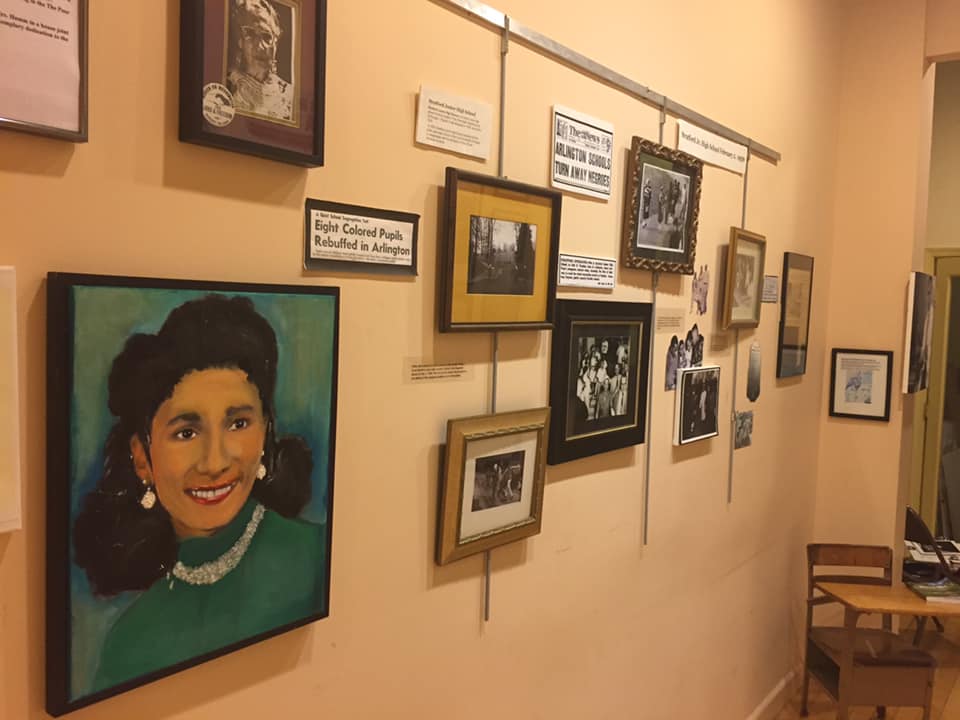
There’s no better way to celebrate the lives and contributions of historical Black Virginians than to visit one of the commonwealth’s many museums and centers that are working to preserve Black history and culture.
Black History Month is upon us. The month offers the opportunity to look back at the past, while also keeping an eye on the future.
Here are eight places to visit this month if you’re looking to brush up on your local Black history.
Booker T. Washington National Monument

Location: Hardy
An obvious place to visit this month is Booker T. Washington’s birthplace, which is a national monument.
Despite being born a slave in 1856 on a 207-acre farm in rural Franklin County, Washington went on to become one of the country’s best-known historical Black figures.
“After the Civil War, Washington became the first principal of Tuskegee Normal and Industrial School,” according to the National Park Service. “Later as an advisor, author and orator, his past would influence his philosophies as the most influential African American of his era.”
When visiting the monument, start off at the visitor center to view the exhibits and watch an audio-visual presentation about Washington’s life. From there, you can walk on one of two trails around the old plantation. The farm and garden areas depict what life was like there in the 1850s.
Black History Museum and Cultural Center of Virginia
Location: Richmond
The Black History Museum and Cultural Center of Virginia preserves “stories that inspire.”
When visiting the center, don’t miss out on the “Forging Freedom, Justice and Equality” special exhibition, which is on display through the end of April and celebrates the center’s 40th anniversary.
There are also four permanent collections at the center, including exhibits on Wendell Scott, NASCAR’s first Black driver, Howard Lee Baugh, a Tuskegee Airman, the Emancipation Oak, a tree on the campus of Hampton University, and the Richmond 34, a group of Virginia Union University students who held nonviolent sit-ins.
The center has three events coming up later this month, including a screening of “The Black Fire Documentary” on Wednesday, Feb. 15, a presentation of notable African Americans as portrayed by children on Saturday, Feb. 18 and the Black Facts Competition on Saturday, Feb. 25, in which local high schoolers will demonstrate their knowledge of Black history.
Fredericksburg Area Museum

Location: Fredericksburg
The Fredericksburg Area Museum preserves and teaches local history, including the area’s African American history. A notable part of that history is the “Auction Block,” which was associated with the sale of enslaved people and stood on the corner of William and Charles streets in downtown Fredericksburg from around 1843 until June 2020.
The block can be viewed at the museum, along with an accompanying exhibition. It is a “physical and digital exhibition grounded in historical documentation, academic scholarship, and extensive community involvement.”
Harrison Museum of African American Culture
Location: Roanoke
An extensive collection of “memorabilia, photographs, and objects relating to the African American experience in the Roanoke Valley” is housed at the Harrison Museum of African American Culture.
A notable feature of the museum is the oral history archive from the perspective of community elders that highlights the culture and significance of the area’s Black communities.
If you aren’t able to make it to the museum this month, you can still check out the recordings of the museum’s past speaker series.
The Black Heritage Museum of Arlington

Location: Arlington
“African Americans played a vital role in the formation and development of Arlington County,” according to The Black Heritage Museum of Arlington. “African American history is not a separate component of the Arlington story, but a central part of our shared history.”
To learn about that history, including the Freedman’s Village which was established in the 1860s with the intention of it being “a model community for freedpersons,” plan a visit to the museum.
Robert Russa Moton Museum
Location: Farmville
The Robert Russa Moton Museum, which is located at the former Robert Russa Moton High School and now a National Historical Landmark, is “the birthplace of America’s student-led Civil Rights Revolution.”
The small town in the center of the commonwealth cemented itself in the history books when students “led by then-16-year-old Barbara Rose Johns staged a walkout in protest of inadequate and unsafe school conditions.”
Six galleries that recount seminal moments in the civil rights movement, including Davis v. Prince Edward and the Supreme Court’s 1955 Brown II ruling, are housed at the museum.
Before visiting the museum, check out its interview series.
Jefferson School African American Heritage Center
Location: Charlottesville
The Jefferson School African American Heritage Center’s mission is to “preserve the rich heritage and legacy of the African American community of Charlottesville/Albemarle, Virginia and to promote a greater appreciation for…the contributions of African Americans and peoples of the Diaspora.”
The Jefferson School, which opened in 1865 as a Freedman’s School, is a significant part of Charlottesville’s African American heritage. After moving and going through various iterations, the school closed in 1965.
The center is now home to various exhibits, art exhibitions and the Isabella Gibbons Local History and Digital Humanities Center, which researches the history of Albemarle County from the period of enslavement through the present.
When visiting the center, be sure to look for the permanent exhibition “Pride Overcomes Prejudice.” It tells the story of the school through the voices of alumni and community members.
Hampton History Museum

Location: Hampton
The Hampton History Museum has exhibits, including “1619: First African Landing” and “When the Computer Wore a Skirt: NASA’s Human Computers,” on some of the pivotal moments in Black history.
Storyteller Dylan Pritchett will be sharing traditional stories from enslaved Africans and their hidden meanings on Saturday, Feb. 18 at 11 a.m. at the museum.
After visiting the museum, you can continue on the Hampton Black History Driving Tour. The tour “explores the largest stone fort in the U.S., one of the ‘Great Trees of the World’ and a historic African American neighborhood.”

Here’s everything you need to know about this month’s Mercury retrograde
Does everything in your life feel a little more chaotic than usual? Or do you feel like misunderstandings are cropping up more frequently than they...

VIDEO: Check out Dogwood’s new merch line
Big news, Virginia! We've officially launched our Dogwood merch line 🎉 This year, we celebrate 5 years of bringing you Virginia news you can use....

VIDEO: Your support matters!
Your support matters! Donate today. @vadogwoodnews Your support matters! Visit our link in bio to donate today. #virginianews #virginia #community...

Op-Ed: Virginia’s new Democratic majorities pass key bills to improve your lives, but will Youngkin sign them?
The 2024 Virginia General Assembly regular session has wrapped up. It was a peculiar session from the outset, with Democratic majorities in the...

From the state rock to the state flower, here’s how Virginia got its symbols
Have you ever wondered why the Dogwood is the state flower? Or how the cardinal became the state bird? We’re here to answer those questions and more...

VIDEO: Second-gentleman Douglas Emhoff gives speech on reproductive freedom
Second gentleman, Douglas Emhoff touched on reproductive freedom not only being a woman's issue but "an everyone's issue" during the Biden-Harris...





